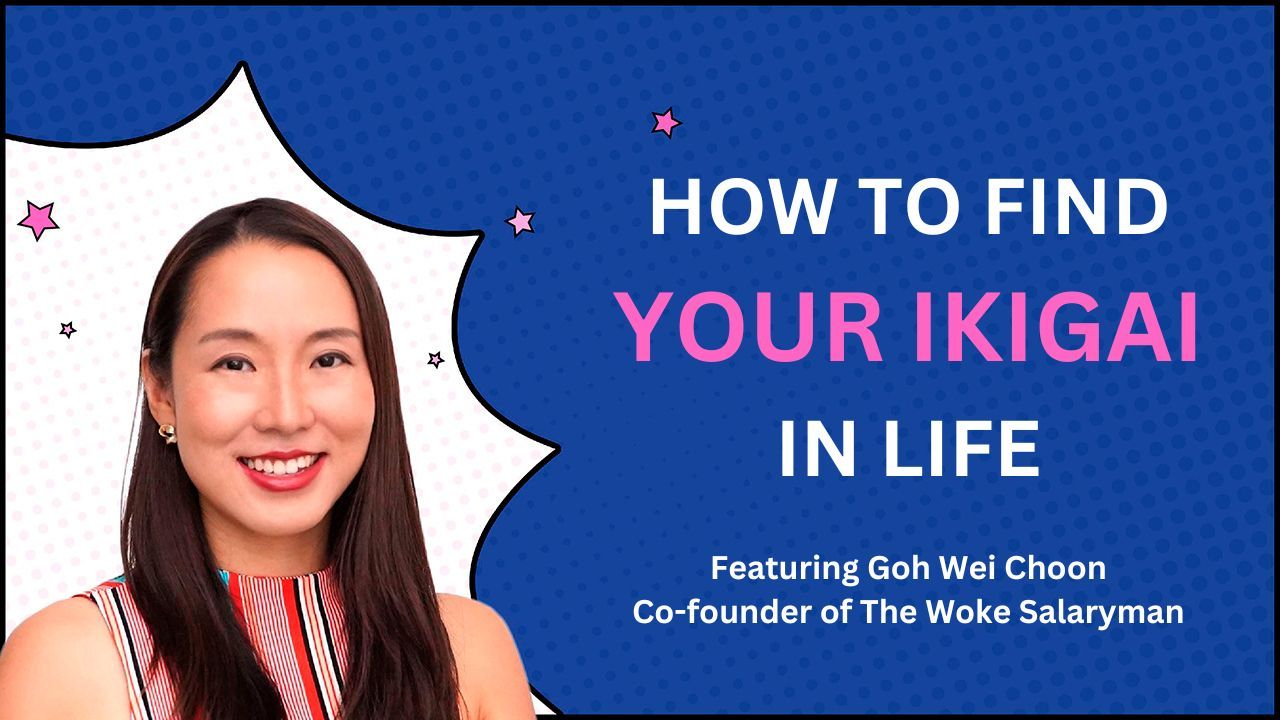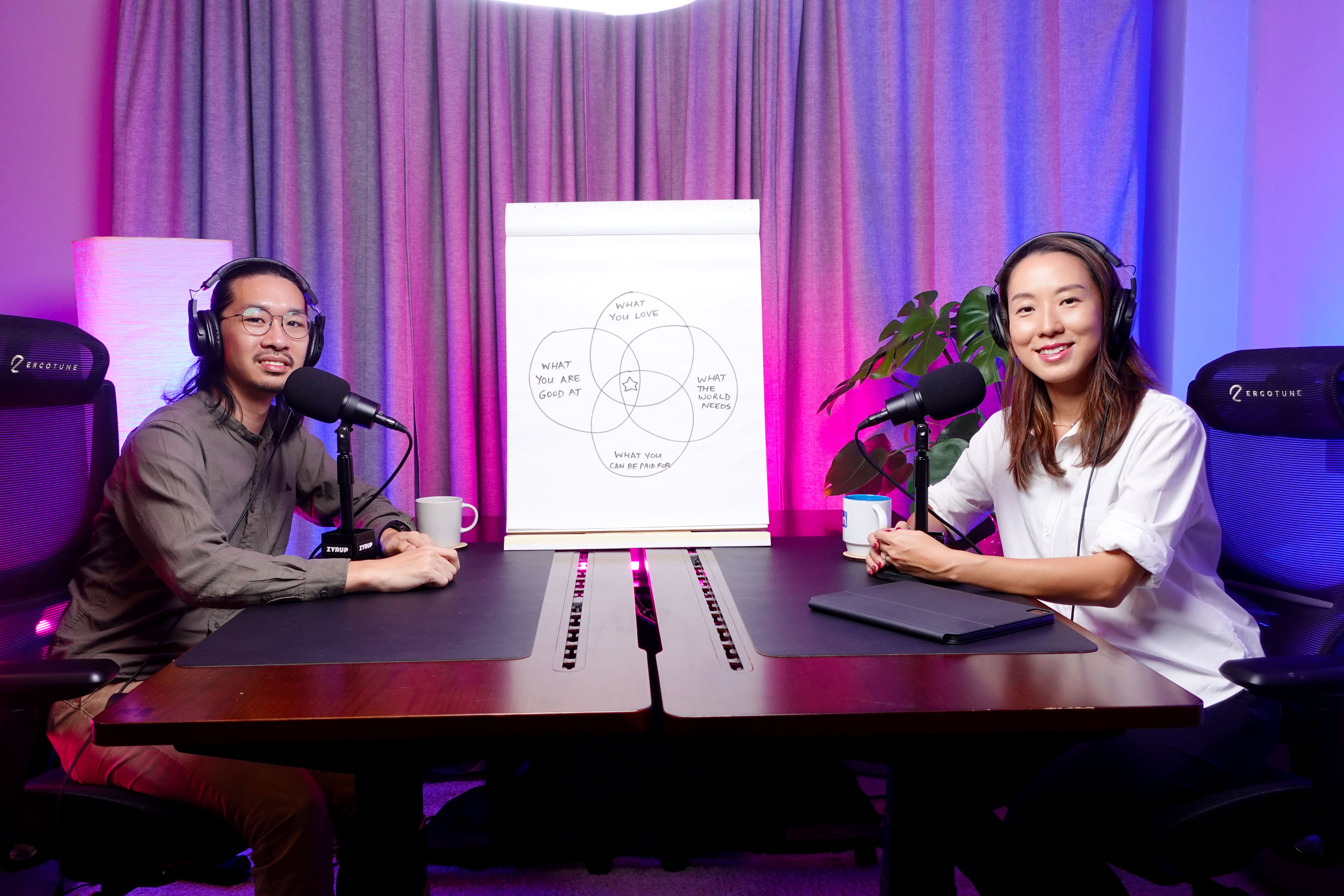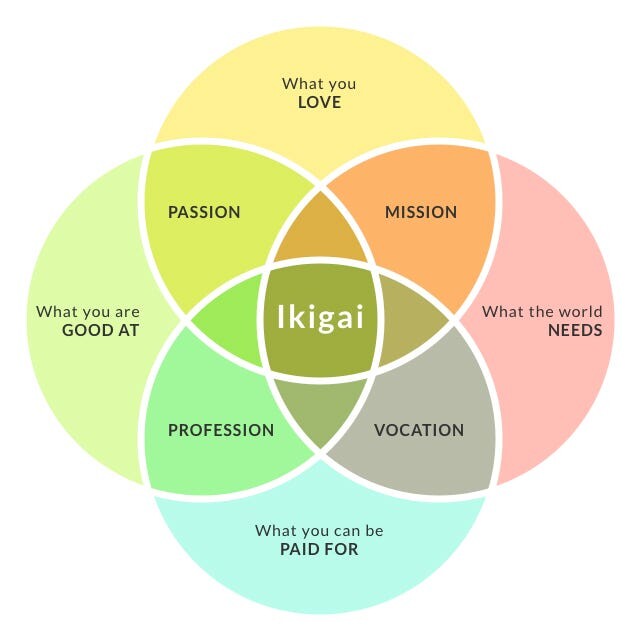How to find your ikigai in life
Mar 16, 2023
Find Your Superpower newsletter 005
Read time: 6 minutes
Topics covered: Finding purpose & passion at work, perfectionism & imposter syndrome, money vs mission
I am thrilled to announce the launch of my first-ever podcast and video series, “The Science of Work with Juliana Chan.”
In this series, I discuss the importance of finding passion and purpose at work, and offer practical advice for anyone looking to discover their own unique path to career fulfilment. Please subscribe to my podcast on Spotify and Apple Podcast and leave me a five-star rating!
My first guest is Goh Wei Choon, the illustrator behind The Woke Salaryman, a comic-style blog that he and He Ruiming co-founded to make personal finance fun and accessible for everyone.

What does ikigai mean?
The Japanese say that everyone has an ikigai—a reason for living. Ikigai is a lifestyle that strives to balance the spiritual with the practical, and it is at this intersection where our passions and talents converge with the things that the world needs and is willing to pay us for.
Many of us have experienced the conflicting desires of wanting to live a life of meaning and purpose, but also wanting to enjoy a lifestyle that only money can buy. What if we don’t have to give up one for the other?

In the first episode, “How to Find Your Ikigai in Life,” Wei Choon and I use the Ikigai Venn Diagram (above), which was created by Andrés Zuzunaga, as a simple framework for our discussions. In theory, if you succeed in achieving the goals described on these four leaflets, you would have found your ikigai.
Wei Choon shared results from a Japanese government survey that asked participants aged 60 and above to list activities they associated with ikigai. Some of the responses they received were startingly simple:
- getting together with family
- eating delicious food
- watching TV or listening to the radio
- chatting or having meals with friends or acquaintances
- being passionate about hobbies
Hmmm... could all of us be overthinking life?
Perfectionism and the imposter syndrome
When we got to discussing what you are good at, Wei Choon shared that it was not always smooth sailing during the process of creating the famous marshmallow and salaryman characters for The Woke Salaryman.
“I suffer a lot from imposter syndrome as an artist. I have this problem where I tie whether I am good at drawing to whether I feel good or not, or whether I am doing well or not.”
There are downsides to being a perfectionist, he said. “It doesn’t get things out of the door, and a lot of times, the stuff that I deem lousy or not good enough to post, I’ll go back and look at it two years later and say, actually it is not bad, why didn’t I post this!”
Which is why all of us need trusted peers and mentors to act as a sounding board for our darkest fears. For Wei Choon, that sounding board would be his co-founder Ruiming. “Ruiming pushes me to get things out. He lets me know when things are good enough and that’s the point. There’s never perfection. There’s only good enough.”
Is it ever alright to sell out for money?
“The idea of selling out as a label is something I have put on myself before,” Wei Choon said. “I’ve identified myself as an animator at heart since I was 14 when I saw a film called Princess Mononoke.”
But upon graduation, Wei Choon discovered how challenging it would be to work on animation full time. He pivoted to graphic design, joining a medtech firm as a designer. “What would the 20-year-old Wei Choon think? I am betraying myself. I am selling out!”
Wei Choon later realized that he was being very unfair to himself, as the money he earned from “selling out” was what allowed him and his co-founder to eventually work on The Woke Salaryman full time.
“Selling out is not a permanent label; it is not a brand that is burnt onto you. I think it is OK to sell out for a while to accrue resources, to then chase what you love to do.”
“I also learnt that my (animator) friends were not judging me,” he said. “The were happy that I got enough money doing something that is not too far out of my comfort zone. And if they did (judge me) they wouldn’t be my friends.”
But first: pain before joy
I offered an unpopular opinion that the moment you find your ikigai, life gets more miserable and there’s more suffering involved. I argued that the media gave an unrealistic depiction of ikigai as an event that resulted in money rolling in and sustained job satisfaction.
In my case, I shared that when I finally decided that I wanted to become a professional science communicator, I had to create a company from scratch and find a way to earn money from it because of a dearth of options available in Asia. Next, I had to quit a job that was essentially an iron rice bowl to work on something that came with zero job security.
Wei Choon offered, “Suffering makes something worth it I think. If it is too easy you wouldn’t want it.”
I couldn’t agree more.
Have you found your ikigai? Try the Ikigai-9 test!
At the end of our chat, we discussed the Ikigai-9 test, a psychometric tool created by Imai et al. to evaluate whether one had found their ikigai. While we would normally grade each statement on a scale of one to five, for the interview I used a YES-NO scale for all nine questions:
- I often feel that I’m happy
- I would like to learn something new or start something
- I feel that I am contributing to someone or to society
- I have room in my mind
- I am interested in many things
- I think that my existence is needed by something or someone
- My life is mentally rich and fulfilled
- I would like to develop myself
- I believe that I have some impact on someone
If you want to find out how Wei Choon scored on the Ikigai-9 test, listen to the podcast on Spotify and Apple Podcast here.
See you next week!
Besides my newsletter, here’s how I can help:
- I invite you to subscribe to The Science of Work podcast on Spotify and Apple Podcast to be alerted to future podcast episodes. Please also leave me a five-star rating and comment! ⭐⭐⭐⭐⭐
- Buy my 1h on-demand video course on professional branding, called Find Your Superpower: How to Rebrand Yourself on LinkedIn. It will help you identify your professional brand, write a brand statement from scratch, and create original content and network on LinkedIn
- Sign up to my newsletter mailing list to receive a 10% DISCOUNT coupon code for the masterclass.